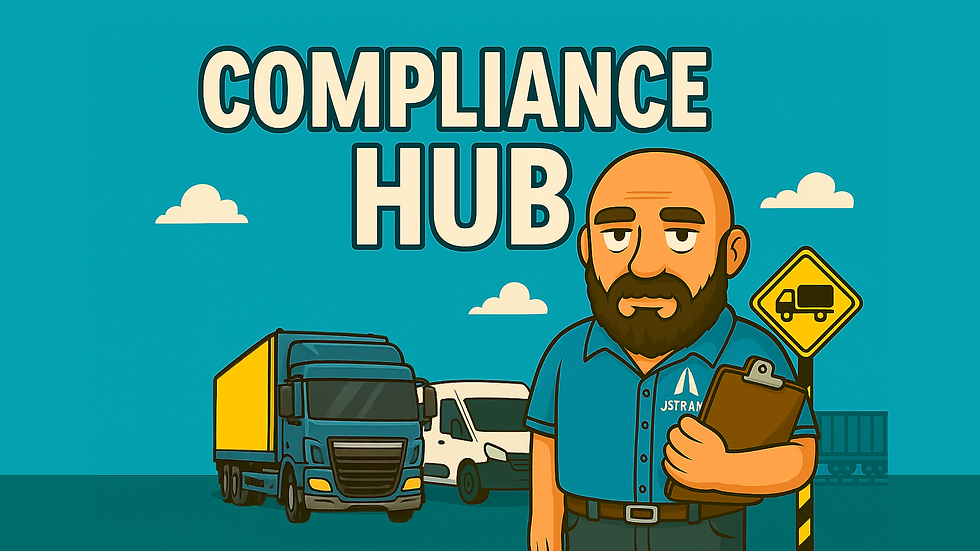5 Reasons Best Practice Saves Money on a Restricted Operator Licence
- stuart47304
- Jul 14, 2025
- 2 min read

Running a business under a Restricted Operator Licence means you need to juggle many compliance requirements. While some operators see compliance as a cost or burden, adopting best practices can actually save you money — and protect your licence.
Here are five clear ways that best practice compliance saves you cash and keeps your business running smoothly.
1. Avoid Costly Fines and Prohibitions
Failing to meet legal standards, such as skipping maintenance or ignoring driver hours rules, can lead to fines, fixed penalties, or vehicle prohibitions. These enforcement actions not only cost money directly but can also disrupt your business operations, leading to lost income.
Best practice means: Staying ahead with maintenance schedules, thorough walkaround checks, and driver compliance prevents costly tickets and downtime.
2. Reduce Vehicle Repair and Replacement Costs
Regular maintenance and timely defect repairs help avoid major breakdowns and extend vehicle life. Neglecting maintenance might save money short-term but causes expensive repairs or early vehicle replacement.
Best practice means: Investing in planned maintenance reduces unexpected breakdowns, repair bills, and replacement costs, freeing up cash flow.
3. Improve Fuel Efficiency and Operating Costs
Well-maintained vehicles run more efficiently, consume less fuel, and experience fewer costly delays. For Restricted Licence holders running tight margins, even small improvements in fuel economy make a difference.
Best practice means: Keeping tyres properly inflated, engines tuned, and brakes adjusted lowers fuel consumption and operating expenses.
4. Protect Your Operator Licence and Business Reputation
The ultimate cost of poor compliance is losing your licence — meaning your business must stop operating. This can destroy client relationships and your reputation in the industry.
Best practice means: Demonstrating good repute and compliance builds trust with the Traffic Commissioner, clients, and insurers — ensuring business continuity.
5. Streamline Administration and Save Time
Efficient record-keeping and compliance management reduce time spent chasing paperwork, preparing for inspections, or responding to enforcement letters.
Best practice means: Using digital tools and clear systems cuts admin overhead, letting you focus on growing your business.
Final Thoughts
Adopting best practice compliance isn’t just about meeting legal requirements — it’s a smart business strategy that protects your bottom line.
For Restricted Operator Licence holders, where resources can be tight, the savings from avoiding fines, prolonging vehicle life, improving fuel economy, and reducing admin headaches can be significant.
Start today by reviewing your systems, scheduling regular maintenance, and keeping meticulous records. Your wallet — and your licence — will thank you.
